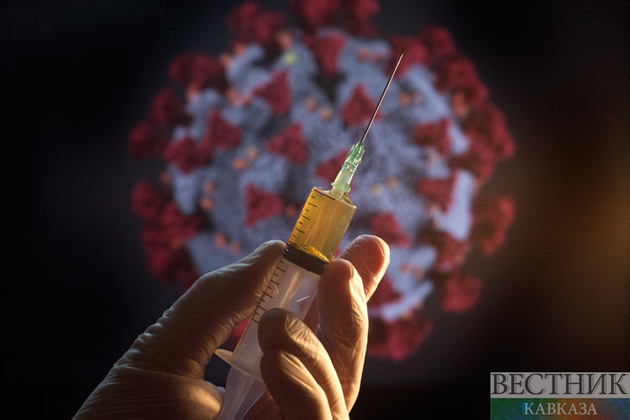The COVID 19 pandemic, which has brought the world to the brink of a humanitarian catastrophe, has become a kind of test of humanity's strength. The great bulwarks of the world's economy and wealth - the United States, the European Union-found themselves in the position of helpless wanderers who desperately tried to save themselves, without a clear plan or any effective means, EU Reporter reports. The price of such self-confidence was too high - many thousands of victims, the closure of countries, the disruption of tourism, social tensions and huge economic losses, writes Alexi Ivanov, Moscow correspondent.
Fortunately, funds were found to fight the epidemic, vaccines were developed, and unprecedented measures of isolation and restriction of movement were taken. However, the evil of COVID 19 still does not recede, and the measures taken often have a contradictory effect. Europe is experiencing the third wave of the pandemic, although previously many were sure that the disease had stepped back.
Russia, as a part of the global space and an active participant in global processes, also found itself in the epicenter of the pandemic with all the ensuing consequences. So far, the rates of new diseases remain quite high, although the state is taking comprehensive measures to curb the disease.
Russia was one of the first countries to develop an effective medicine of countering the new disease. The name of the drug was Sputnik V. Russia has done everything to make the new vaccine a real means of combating COVID 19, providing the necessary laboratory and practical indicators.
But, as always, politics intervened. The collective West unanimously declared that the Russian vaccine is another "fake" from Moscow. Even after the laudatory article in the well-known medical journal Lancet, the criticism of Sputnik V continued. Some European politicians, especially in the Baltic states, have agreed that the Russian vaccine is "Moscow's new ideological weapon".
The rapid growth in the popularity of Sputnik V, especially against the background of scandals with the supply of other vaccines produced in Europe and America, as well as the contradictory results of the use of some drugs, only added to the popularity of the Russian vaccine.
It is noteworthy that there is a very contradictory attitude to Sputnik V in the European Union. The approval procedure for European Medicines Agengy remains uncertain. Moreover, there are statements from Brussels that Sputnik V will not receive permission to use it at all, precisely for political reasons.
Nevertheless, a number of EU countries are purchasing Sputnik V, bypassing Brussels. Should the data on Sputnik vaccinations be included in the planned "vaccine passports" in Europe? The decision has not yet been made, the head of the European Commission, Ursula von der Leyen, cautiously comments.
Hungary has already approved both Sputnik V and China's Sinofarm vaccine. Both the Czech Republic and Slovakia have ordered large quantities of the Russian vaccine and are not going to wait for the European Medicines Agency to complete the process and issue a permit. Austria intends to do the same.
According to the German publication Der Spiegel, recently there has been a very unusual phenomenon-medical tourism to Russia. German clinics are known all over the world for high-class specialists and modern equipment. However, in this case it turned out the opposite: the Germans of the most advanced and enlightened Germany, desperate to be vaccinated against Covid-19 in his native country, go to Russia.
According to Der Spiegel, the first "vaccine tour" to Moscow, organized by a Norwegian company and held in mid-April, gathered 50 German citizens. As the Germans who came to Russia to get vaccinated say, at home they would have to wait for vaccination for months. In Russia, everything went very quickly. In Germany itself, as in other EU countries, they are vaccinated with AstraZeneca. According to the Germans themselves, it is inferior in effectiveness to the Russian vaccine, but this is not even the point: it is very difficult to get vaccinated in Germany due to organizational issues. So, first one age group is vaccinated, then another, and if you do not belong to these age groups, you will have to wait for your turn for quite a long time.
Of course, for foreign citizens, vaccination in Russia is paid. The Minister of Health of Russia Mikhail Murashko also drew attention to this. Foreigners are vaccinated at a price of 30 euros per injection in private medical clinics, while the cost of "vaccine tours" is much higher – about 2 thousand euros, but this price includes travel, accommodation and food for the duration of the medical procedure.
But why don't European countries just allow the use of the Russian vaccine? Despite the obstacles to the Russian vaccine, both bureaucratic and political, a Sputnik V "parade" around the world is becoming more active every day. More and more countries are showing interest in supplying the drug, which confirms people's confidence in the vaccine. Whether Europe will be able to overcome the arrogant disregard for Sputnik V will only show, although the new onset of the disease inevitably requires more effective and decisive measures, far from political whims.






